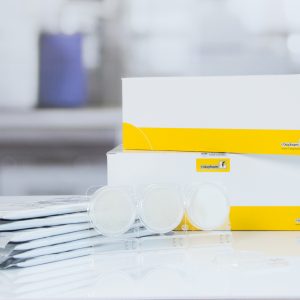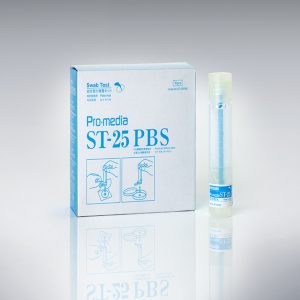Compact Dry AQ
Usage of Compact Dry AQ is a simple and safe test procedure for determination and quantification of heterotrophic water bacteria from water samples (drinking and ultrapure water). The ready-to-use plates consist of a special 50 mm diameter petri dish containing a detection specific nutrient pad.


